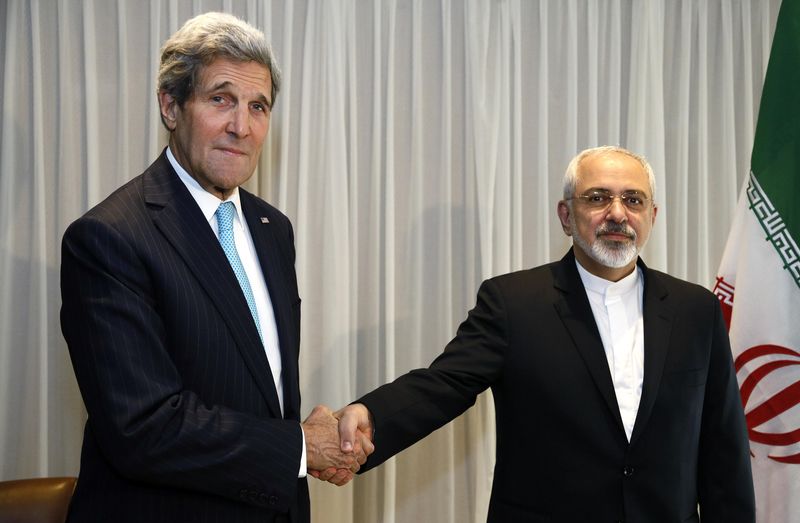DUBAI (Reuters) - Iranian Foreign Minister Mohammad Javad Zarif is to appear before parliament following controversy over a promenade with his American counterpart during intense nuclear negotiations in Geneva, state media reported on Sunday.
Zarif, who leads Tehran's talks with "P5+1" - the United States, Britain, France, Germany, Russia and China - had a 15-minute walk down Geneva sidewalks with U.S. Secretary of State John Kerry during discussions on Jan. 14 aimed at reaching a settlement of the 12-year nuclear dispute between Iran and the West.
Media images of the top diplomats from old adversaries strolling together in a foreign land provoked an outcry among Iranian hard-liners deeply wary of rapprochement with the "Great Satan".
On Friday, conservative-leaning prayer leaders heaped scorn on Zarif and President Hassan Rouhani for the "diplomatic slip-up" and newspapers said 21 members of parliament had signed a petition to call in the moderate minister to provide an explanation.
"Given the Great Satan's endless demands and sabotage during the course of the nuclear negotiations, there is no conceivable ground for intimacy between the foreign ministers of Iran and America," said the petition published in hard-line Fars News.
"Your exhibitionist walk together with (Kerry) along Geneva sidewalks was certainly outside the norms of diplomacy, so why don't you put a stop to such behaviour?"
The row over the diplomatic stroll is the latest in a series of summons since Zarif took charge of the nuclear file in late 2013.
In February 2014 he caused an uproar with public comments condemning the Holocaust and was subsequently summoned to parliament. Holocaust denial has been a staple theme of public speeches in Iran for decades.
Tehran and Washington broke diplomatic ties after Iran's 1979 Islamist revolution, establishing tentative direct contact on specific cases such as the wars in Afghanistan and Iraq, and more recently as part of the nuclear talks between Iran and "P5+1," under way since after President Rouhani's 2013 election.
Supreme leader Ayatollah Ali Khamenei has endorsed official interaction with the United States within the nuclear framework, leaving the field wide open for controversy.
Speaking to reporters in Tehran last week, Zarif sought to justify the private walk with Kerry: "We had a serious earnest session and perhaps there was a need to pause a few minutes and resume in another form. These are quite normal in the world of diplomacy, especially since our hotel had no yard or garden and surrounding alleys were packed with curious journalists."
Despite resurgent criticisms, Zarif held another round of secret nuclear talks with Kerry on Friday in Davos, Switzerland. There has been no word of a breakthrough in the quest for a deal to curb Iran's atomic programme in return for lifting economic sanctions imposed as punishment on Iran in the past.
The United states and other Western countries have long suspected the Islamic republic of seeking nuclear weapons know-how, but Iran insists its programme is geared to production of non-fossil fuel and scientific research.
